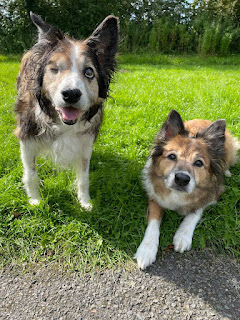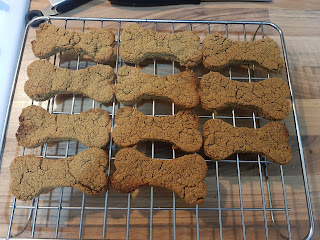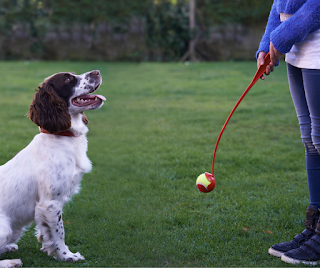Help! My Dog Has Pancreatitis!
Help! My Dog Has Pancreatitis!
This is a subject close to my heart at the moment, as one of our own dogs has recently been diagnosed with Pancreatitis and has been really unwell. Whilst this blog is by no means a replacement for proper veterinary advice, I feel it may be beneficial for those of you who are going through the same thing with your own dog.
Riley is around 11 years old and has had ongoing digestive issues for several years now, including IBD (Irritable Bowel Disease). After his most recent flare up, he was diagnosed with Pancreatitis and thankfully became stable enough to come home after several days staying at the vets. This marked the beginning of me researching various things that may help him and this is what I will write about here.
Please note, that whilst these remedies have proved really helpful for Riley, each dog is an individual so the effects may be different. This should NOT replace professional veterinary advice!
What Is Pancreatitis?
The main aim of the pancreas in the body is to produce enzymes which aid the digestive system. In normal cases, these enzymes only become active when they reach the small intestine. With Pancreatitis cases, these enzymes instead become active directly around the pancreas, causing severe inflammation around that area as well as digestive issues such as vomiting and diarrhoea.
Pancreatic Enzyme Capsules
Because the enzymes produced by the pancreas are not reaching the small intestines, they are unable to help your dog to digest their food effectively. To combat this, we have used pancreatic enzyme capsules which are given directly onto food and become active when they reach the digestive system. We have chosen to use Protexin Pro-Ensorb capsules but there are also other brands available, the most popular being Lypex capsules. After just 2 capsules, Riley's diarrhoea drastically improved.
Probiotic Paste
The aim of probiotic pastes are to help firm up loose stools, as well as providing the gut with essential prebiotics and probiotics which are often disrupted when your dog has diarrhoea. Again there are several different brands available for this product but we use the Vet UK Probiotic Kolin paste, twice daily on his food.
Natural Yoghurt
Plain, unflavoured natural yoghurt is naturally rich in probiotics and prebiotics which as we have previously looked it, is essentially for maintaining balance within the gut. Riley has a tablespoon full each night before his tea.
Specialised Diets
Riley is currently fed on Royal Canin Gastrointestinal Low Fat Kibble and the same wet food. This contains hydrolysed proteins, which are much easier for your dog to digest compared with 'normal' protein. Hydrolysed basically means that the chains of protein molecules in the food, are already broken into smaller pieces, meaning your dog's immune system is less likely to react to them or struggle to digest them. This is especially important for dogs with IBD.
For Pancreatitis management, it is key that the fat levels are kept as low as possible. It is typically recommend that this should be less than 10% on a dry matter basis. But always aim to keep this as low as you possibly can!
Little & Often
Dog's with Pancreatitis often benefit from having several smaller meals throughout the day, as opposed to trying to digest one large meal daily. Riley currently has 2-3 smaller meals a day, though we upped this to 4 meals when he came home from his veterinary hospital stay.
Treats
Like most dogs, Riley LOVES treats and we were really upset at the thought of him not being able to enjoy treats again. Whilst there are treats available by brands such as Soopa, we still felt cautious about introducing Riley to those, as he is so sensitive. Instead, we decided to make our own treats, by simply soaking his own kibble in water, forming them into shapes and then baking them. That way we can be sure that he can tolerate and digest them effectively.
A diagnosis of Pancreatitis can be a frightening and daunting time for you. I understand how overwhelming and often conflicting the advice can be, but hopefully this provides you with some clarity.
Any advice mentioned here that you choose to try, should first be authorised by your vet. This is not a replacement for veterinary advice, it is simply a summary of my own personal experiences of things I have found to be useful in my particular circumstances.
If you would like to find out more about Pancreatitis, IBD and Colitis in dogs, there is a Facebook group set up specifically for people who have dogs who suffer from these conditions. You can join by clicking here.
To keep up to date with my latest blogs, you can sign up to my mailing list for free here.







Comments
Post a Comment